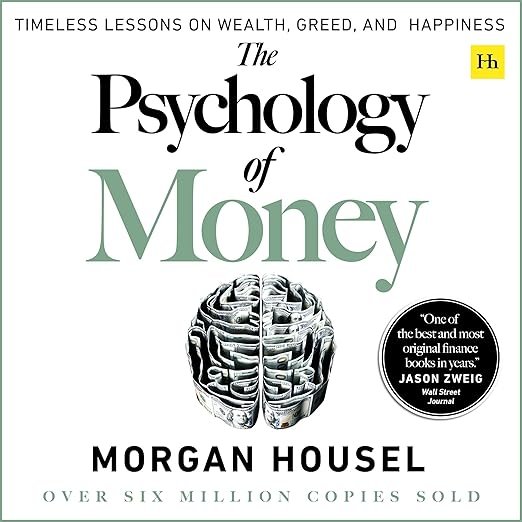Psycology of money
Listen this Amazon Audible (free)
https://amzn.to/3MU4GFx

The Psychology of Money: A Journey into the Financial Mind
Money is more than just numbers in a bank account. It is a powerful catalyst for emotions, decisions and behaviors that shape our lives. In this article, we will explore the meanings of the psychology of money, discovering how our minds influence the way we spend, save and invest.
Our Spending Habits: A Reflection of Our Psyche
Our spending habits are like financial fingerprints, unique to each of us. Let's take Marco, a 35-year-old professional, for example. Every time you get your paycheck, you splurge on an expensive purchase, justifying it as a "reward" for your hard work. This behavior, known as “shopping therapy,” is a classic example of how we associate money with emotional well-being.
But why do we do it? The answer lies in our brain. When we spend, our brain releases dopamine, a neurotransmitter associated with pleasure. This mechanism can lead to a spend-reward cycle which, if left unchecked, can have negative financial consequences.
The Financial Decision Making Process: Between Rationality and Emotion
When it comes to making financial decisions, we often fool ourselves into thinking we are completely rational. The reality, however, is very different. Let's consider the case of Giulia, a novice investor. Despite her financial advisor's advice to diversify her portfolio, Giulia decides to invest all her savings in a single "promising" stock. This decision, driven more by emotion than logic, is an example of "confirmation bias," where we look for information that supports our pre-existing beliefs.